Nutrition in sports is one of the most important elements that many athletes (mostly beginners) neglect. If, for example, your goal is to increase muscle mass and athletic performance, then nutrition actually plays a paramount role.
However, it is necessary to properly approach nutrition issues, because nutrition at different time intervals for an athlete should be different. This is due to the presence of carbohydrate and protein windows in the human body. Therefore, the nutrition before, during, and after training should also be different. In this article, we will just talk about these points.
Nutrition before exercise
Recommendations for athletes:
Proper nutrition before training should give the athlete satiety on the one hand so that during the training session he does not feel hungry, and on the other hand, the correct level of sugar (glucose) in the blood, which is necessary for muscle work during increased physical exertion. Intense physical activity can lead to the destruction of the athlete’s own muscles, especially if glucose and glycogen (glucose in the muscles) are not enough to cover the body’s energy needs.
To eliminate such negative consequences before physical activity, it is necessary to make proteins (quickly assimilated of course). This technique enables the athlete’s body to expend amino acids from food proteins instead of its own amino acids found in the muscles. This allows the athlete to maintain his muscle mass, as well as improve its performance. Also, some amino acids are metabolized in the body to powerful antioxidants (for example, beta-alanine is converted to carnosine). Protein intake before exercise provides faster recovery during exercise, just due to the effect of antioxidants.
Carbohydrates before exercise are also important. As the workout approaches, the number of carbohydrates consumed needs to be reduced: 4 grams per kilogram of weight – 4 hours before exercise, 1 g / kg – less than an hour before exercise. Preference should be given to quickly and easily digestible foods, rather than heavy foods.
Eating should be no less than 2 hours before training. Nutrition before physical activity, both in bodybuilding and in other sports should not adversely affect the training. As already mentioned, food before training should consist of easily digestible protein, healthy carbohydrates, fiber and a minimum of fat. The volume of food intake should not be similar to a part of the Wedding table. I would not recommend eating sweets and flour products.
Remember, all food is eaten two hours before training should be digested. That’s why we do not eat one hour before training, namely for two hours! An exception to this rule can only be sports nutrition products, which are much better and faster than regular foods are absorbed by the body. Such specialized foods can be consumed 30-60 minutes before training. A proper meal helps muscles replenish their amino acids and glycogen stores, as well as avoid excessive damage to the structure of muscle tissues and muscle fatigue.
During the training itself, our body needs substances that already travel with us through the circulatory system, rather than gurgling in a full stomach. Another nuance is that in the process of digestion, part of the energy will be taken away from us, and the blood will flow not only to the working muscles, but also to the stomach, and this will have a very negative effect on the training process. Therefore, before exercise, our stomach should be empty.
Also, if possible, include additional sources of amino acids in the pre-workout diet that will help maintain the level of nitric oxide in the body.
Nutrition during training
- Nutrition during short workouts (lasting less than 60 minutes)
-
The most important thing during short workouts is to remember to drink water! That’s all your nutrition. During a short workout, it is not necessary to replace electrolytes (sports drinks), since glucose (or other types of sugar) in these sports drinks will give you empty calories. You definitely need to fill up the fluid lost during training with water, otherwise, you will get tired prematurely, and your performance will deteriorate. An exception can be intensive training, which, instead of water better to use isotonic (see below) as well as exercise, to increase muscle mass (bodybuilding), which allowed the use of sugar in the beverage for replenishment inventory expenses muscle glycogen.
In medicine, a water deficit of 1% is already considered a sign of dehydration, and a deficiency of 10% is life-threatening. Food during long workouts (lasting more than 60 minutes)
-
During a long workout, the right combination of proteins and carbohydrates is very important. Together, proteins and carbohydrates are absorbed faster, which gives additional support to working muscles at the time of maximum load. Also, the drinking regimen is no less important, since, during a long load, the deficiency of fluid in the athlete’s body can reach 3-4% of the fluid. Therefore, replenishment of the water balance after training is the primary means of recovery. During prolonged physical activity, along with sweat, the body loses sodium, potassium and other minerals and salts, which leads to disruption of the water-salt balance between the extracellular fluid and blood and dehydration of cells. This affects the athletic performance and health of the athlete. Therefore, during a long workout, it is very important to drink dosed isotonic drink (25-50 ml per training), enriched with trace elements. Such drinks are an integral part of sports nutrition; they contain potassium, sodium, chlorine and other minerals, as well as various salts, which are most similar to the salt composition of the blood. Taking isotonic drinks during a workout will make you less tired and recover faster after exercise.
Recommendations for athletes during long workouts:
– Every hour during the training, an athlete needs to consume from 30 to 60 grams of rapidly digestible carbohydrates in combination with a rapidly digestible protein. The combination is very important!
– If you have a long workout, then in between intense physical activity, an excellent product option that combines fast carbohydrates with proteins, for example, a protein bar. In combination, these two macronutrients are quickly absorbed, which will give additional support to working muscles.
– Drink isotonic drinks during a long workout. These drinks do not disturb the water-salt balance in the body and help maintain the optimal state of the body, both during and after training.
Post Workout Nutrition
Eating after a workout is one of the most important meals of the day. It is at this time (post-workout) that your body has the most active metabolism and assimilates all nutrients received with food much faster. If you do not give him these substances, the body will begin to eat itself, burning both our body fat and muscles, because they contain the necessary amino acids for its recovery. From here follows the golden rule of athlete nutrition after training: after training, never leave your stomach empty!
A properly designed post-workout nutrition program is essential for the fastest and most effective recovery. injured muscles, and also greatly affects subsequent athletic performance in training. Remember, NUTRITION is your main anabolic. Studies have confirmed that the main macro-nutrients – protein and carbohydrates – are responsible for muscle recovery after physical exertion. These are the main nutrients for recovery and further muscle building. During training, muscle fibers are injured, their healthy structure is impaired and the muscles weaken. The amino acids that make up the protein and glucose from carbohydrates help the muscles return to their normal structure, which allows the muscles to adapt to the loads and the training process in general. The synthesis of glycogen (glucose) in the muscles will occur 2 times faster if, after training, the body is immediately given carbohydrates. Moreover, the high rate of glycogen synthesis will be maintained,
For quick recovery, it is especially important to nourish your muscles within 30-60 minutes after a workout. The best option is a protein-carbohydrate shake., which is absorbed very quickly, gives the body all the essential amino acids and fast carbohydrates. Protein intake, along with fast carbohydrates immediately after exercise, stops catabolic processes (protein breakdown) and stimulates anabolic processes (protein synthesis). Fast carbohydrates dramatically increase blood sugar, which leads to high pancreatic insulin secretion. Insulin is a transport anabolic hormone that transports glucose and amino acids into the cell, which helps accelerate anabolism (protein synthesis). Omega-3 proteins, carbohydrates, and fatty acids are very necessary during the recovery period after heavy physical exertion. that support anabolic processes and replenish muscle glycogen stores. The process of glycogen recovery in the muscles and injured muscles themselves can stretch for several days, therefore, it is important to ensure the regular intake of proteins, carbohydrates and “ proper ” fats into the body. The quality and quantity of protein consumed is of utmost importance. Protein should contain the entire spectrum of amino acids. If after training you do not have the opportunity to prepare a protein-carbohydrate shake, then just eat a protein bar, which, in addition to protein, also contains carbohydrates.
After this meal, for a maximum of 1.5 hours, you should make a good full meal with ordinary foods. As a rule, everything that you eat after a great intense workout will go towards muscle and energy recovery. After a workout, however, for two hours, it is not advisable to eat foods high in caffeine and unnecessary fats. The fact is that caffeine interferes with the work of insulin and, thus, your muscles will hardly replenish their glycogen stores. And the fat contained in food slows the passage of proteins and carbohydrates from the stomach into the blood. If you don’t have the opportunity to eat normally after a workout, then before the main meal continue to consume 50-100 grams of carbohydrates + 10-20 grams of protein every 2 hours.
Nutrition after training is one of the most important parts of the overall training program. A heavy load on the body is stress, which causes catabolic processes in the muscles, which leads to both a slowdown in the growth of muscle mass and its loss. Therefore, forever remember the main postulate of an athlete’s nutrition: “If you don’t give the body what you need after training, the body will take it from your already destroyed muscles by the load.
Nutrition in sports is a very important point that many, especially beginners, often ignore. If your goal is muscle mass, you can’t do without proper nutrition. Nutrition for weight gain, for example, in bodybuilding actually plays a paramount role.


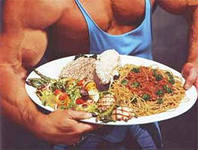

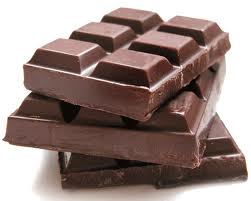
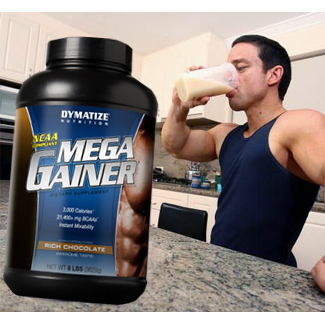

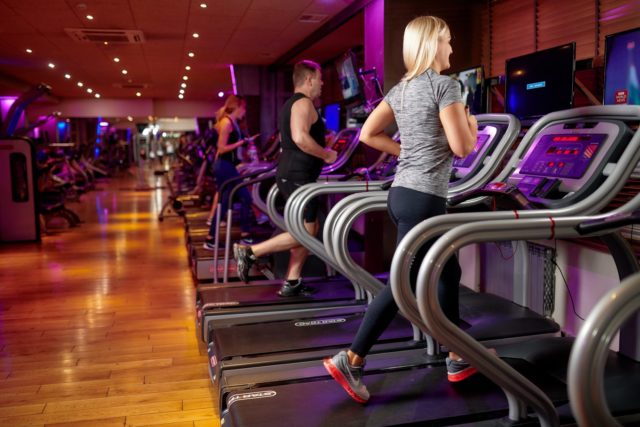
 If pineapple is known as the “king” of fruits, guava is considered the queen. Thought to be native to southern Central America and Mexico where it’s been a major crop for centuries, guavas are members of the myrtle and eucalyptus family, growing throughout the tropics on small trees with smooth, copper-colored bark.
If pineapple is known as the “king” of fruits, guava is considered the queen. Thought to be native to southern Central America and Mexico where it’s been a major crop for centuries, guavas are members of the myrtle and eucalyptus family, growing throughout the tropics on small trees with smooth, copper-colored bark.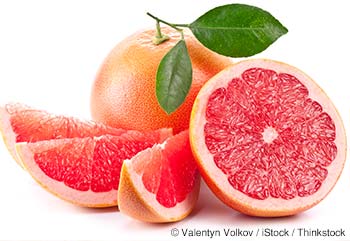 If you’re looking for a juicy burst of flavor that’s as refreshing as anything you’ll ever eat, grapefruits certainly deliver. Large in comparison to other citrus fruits, grapefruits could be described as mouth-wateringly tart with a hint of sweetness – somewhere between a lemon and an orange.
If you’re looking for a juicy burst of flavor that’s as refreshing as anything you’ll ever eat, grapefruits certainly deliver. Large in comparison to other citrus fruits, grapefruits could be described as mouth-wateringly tart with a hint of sweetness – somewhere between a lemon and an orange.